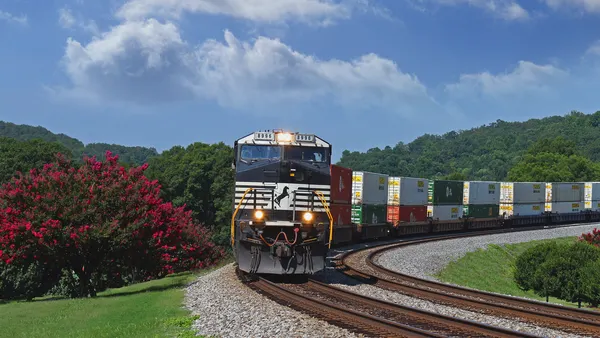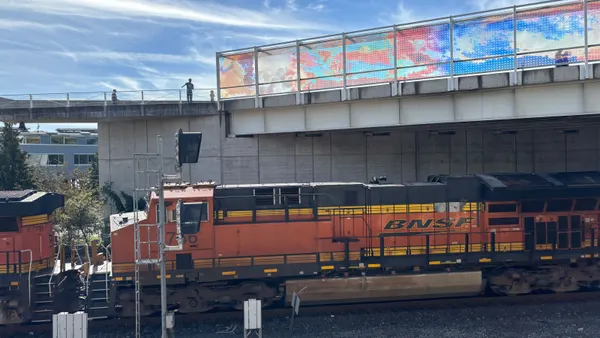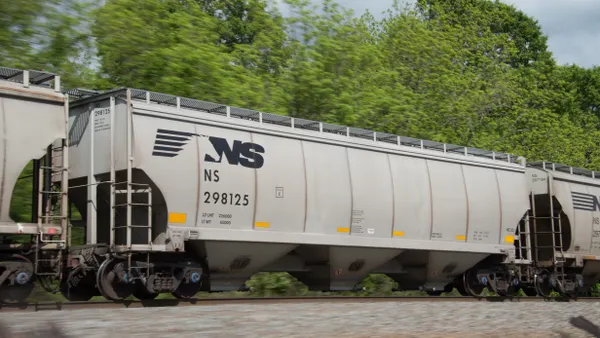Dive Brief:
- Kansas City Southern (KCS) is closely watching Union Pacific's transition to precision scheduled railroading (PSR) before deciding how and whether it will apply the operating model to its own service, CEO Patrick Ottesnmeyer said during a third-quarter earnings call.
- "There certainly are elements of the precision scheduled railroading methodology that we think makes sense. A lot of these fallback to things like lean processes, trip plan compliance, more adherence to trip plans, improved asset utilization, discipline," Ottensmeyer said.
- Union Pacific is a large interchange partner for the cross-border railroad (KCS). As a result, Kansas City Southern COO Jeffrey Songer, said while the western U.S. railroad's transition may affect KCS' own schedules, it is also an opportunity to "kind of lean things up to be honest."
Dive Insight:
"The magnitude and degree of our interchange with UP is really going to dictate that we cooperate and in some cases probably follow their lead on some changes in their operating philosophy," Ottensmeyer said. "We're going to be very open-minded to adopting and integrating those principles."
Ottensmeyer's comments followed a question from Credit Suisse's Allison Landry on whether the railroad was considering a similar PSR shift now both Union Pacific and CSX are in the conversion process.
It reflects a greater trend in the industry: The operating model, once seen as late Hunter Harrison's trademark business plan for Canadian railroading, is now not just accepted but demanded by the investment community.
For months after CSX implemented the model in 2017, Norfolk Southern — its main competitor in the west — began to receive pressure from investors to improve its own service. This week, the railroad said it would adopt "principles" of PSR, and that it would roll out its full plan Feb. 11, 2019, Trains reports.
If KCS' comments hold true and the railroad rolls out a plan (not just an intention) to implement PSR, even in principle, six of the seven Class I railroads serving the U.S. will have made the shift.
The hold-out is BNSF, and that, too, may be indicative. In an analyst note earlier this year, Moody's used the railroad's reputation for good service as a case to point out "precision scheduled railroading is not a panacea for service problems."
But for some analysts, it is a fashionable solution to service issues.
KCS spent much of its third-quarter earnings call talking about congestion on its network, caused by high growth in cross-border rail volumes coming from Mexico. Congestion cost the railroad an additional $7 million in due to higher equipment, labor and overtime expenses.
"At this moment our service is not meeting our customers nor our own expectations, and our operational efficiency is not where it needs to be to handle all of the growth that we see in front of us," Ottensmeyer said in his closing comments. "We will get better."














